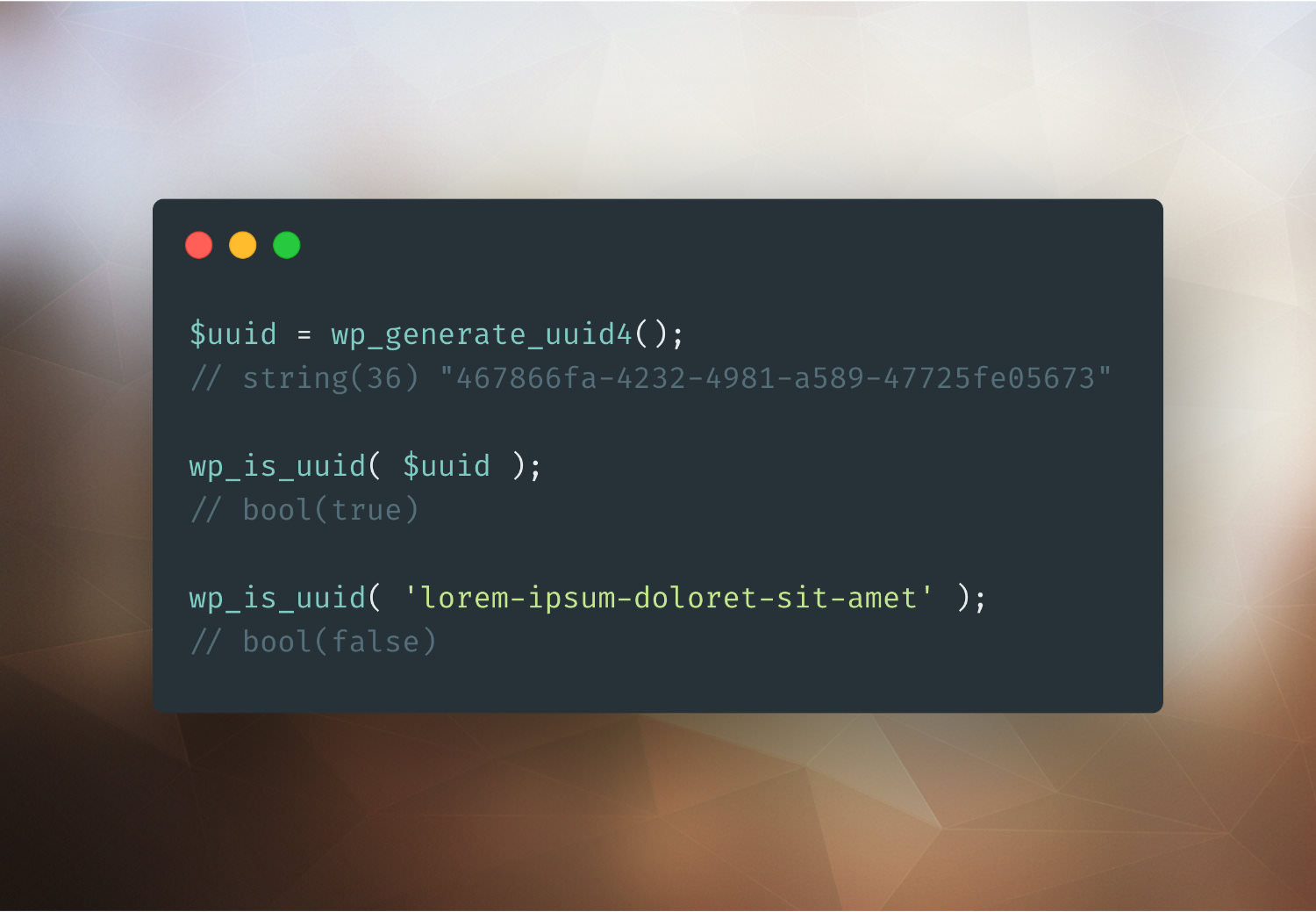
a Type 4 UUID) // and the name is an arbitrary string (e.g. Type 3 uses // MD5 hashes and Type 5 uses SHA-1. $uuid = Uuid ::v4() // $uuid is an instance of Symfony\Component\Uid\UuidV4 // UUID type 3 and 5 generate a UUID hashing the given namespace and name. $uuid = Uuid ::v1() // $uuid is an instance of Symfony\Component\Uid\UuidV1 // UUID type 4 generates a random UUID, so you don't have to pass any constructor argument. Both are obtained automatically, so you don't have to pass any constructor argument.
Uuid generator php mac#
MySQL UUID Smackdown: UUID vs.// UUID type 1 generates the UUID using the MAC address of your device and a timestamp.Wikipedia - Universally unique identifier.- Customization - Timestamp-first COMB Codec.While (($row = $result->fetch_assoc()) != null) Luckily, we can use PHP to convert this binary form into a human readable string with the following logic (courtesy of a Stack Overflow post): $selectQuery = "SELECT * FROM `table1`" Unfortunately, when you select the data, you will get what appears to be junk out. We can create the table and then insert the data in binary format by using the unhex function after removing the hyphens: CREATE TABLE IF NOT EXISTS `table1` ( We can improve performance by using a binary format. This might be okay for small tables, but not for large ones. however, perhaps you're like me and the thought of using a varchar type for your primary key makes you cringe. The easiest way to get started, would be to just use a varchar field like below CREATE TABLE `user`( $uuidString1 = Ramsey\Uuid\Uuid::uuid4()->toString() $factory->setRandomGenerator($generator) $codec = new Ramsey\Uuid\Codec\TimestampFirstCombCodec($factory->getUuidBuilder()) Installation composer require ramsey/uuid I am going to use a package recommended from an online talk, for generating my UUIDs. PHP Lecture - Identify All the Things With UUIDs!.PHP - Doctrine ORM Good Practices and Tricks.
Uuid generator php how to#
This tutorial will show you how to generate UUIDs in PHP, and learn to store/retrieve them in either MySQL or PostgreSQL. Thus there is no need to change them and worry about maintaining the foreign key relationships. Can copy data across from one database to another without worrying about identifiers clashing.This allows batch inserts of objects without needing to run a SELECT query later to get the IDs.

Can assign an object an ID in your application layer and insert it into the database later.However, there are many advantages to swapping over to using a UUID instead. If you are using PostgreSQL you may be using a sequence/serial instead. If you're like me, you've been using integers generated by MySQL auto_increment for the IDs of the rows in your tables. This will never change, unlike the drive letter which may.

dev/sda5: UUID="ef2ece1c-dab1-47e7-9e39-79ba1921a302" TYPE="swap" PARTUUID="f7649116-05"Īs you can see, each of the disks is given a UUID which you one use to identify them.
A universally unique identifier (UUID) is a 128 bit number used to identify information in computer systems.Īn example where you might see them is in Linux when you run blkid to identify your disks as shown below: /dev/sda1: UUID="039b9d65-373a-4a64-ba35-696198bc57f1" TYPE="ext4" PARTUUID="f7649116-01"


 0 kommentar(er)
0 kommentar(er)
